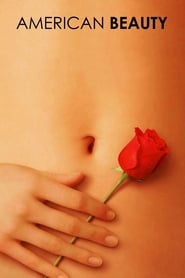It's absolutely bonkers that the famous 'plastic bag dancing in the wind' was inspired by something that actually happened to screenwriter Alan Ball whilst he was (wait for it…) walking over the plaza by the World Trade Centre. How more 1990s can you get?
After 25 years, American Beauty has aged like Kevin Spacey's post-workout smoothie, but there's still something to admire hidden in this gently allusive mainstream movie that defies superficial explanation (which was plucked out of a heap of scripts by none other than Steven Spielberg). I'd take this film's pseudo-profundity over another superhero movie, at the very least. Anyway, lester is our 'hero' in that he stands up for himself in what he perceives to be an overwhelmingly stifling culture — but, of course, he seems to do it in the worst way possible. The tension between these two components can work especially well when a narrative can balance this on the knife-edge of the current cultural moment, as you can convince an audience to experience guilt after they find themselves vicariously enjoying the protagonist being an asshole on their behalf. But when the culture's centre of gravity moves on (as it has definitely has since 1999), you can be left with, well, just the asshole side of that. Yes, it is kinda witty to have Lester apply for a job flipping burgers because he did that as a teenager, but now we would consider it both really condescending to do that and an unrealistic and sanitised portrayal of fast-food workplace environments. Moreever, with the concepts behind generational political analysis more widely understood, we can now more easily identify that all Lester does with his new-found freedom is to relive his Baby Boomer youth: nostalgically buying the 70s car always wanted; wanting to sleep with girls who are now the age he was at the time of his strongest memories; and, as touched on above, even getting exactly the same job he had back then. Gosh, what an imagination!
Even in 1999, though, the film purports to show Lester and Carolyn as equal offenders in their marriage, but note that it's always Carolyn who is eventually undercut by the screenplay, in ways both big and small: Lester either gets the (literal) last word during their many arguments or, for instance, when Carolyn absorbs some second-hand confidence through playing Lenny Kravitz in her car, this small moment for her is sabotaged by returning home to see Lester's new Pontiac Firebird in the driveway. American Beauty invariably sides with and endorses Lester's view in the end, and thus plays into the stereotypes of the middle-aged harrigan.
This is one of the first films that made me realise (with help from pointers on early YouTube) that films can convey subliminal visual cues: it's now common to observe that Lester appears in prison-like cubicles or behind bars of one kind or another. And that the symbolic red roses seem to pop up in meaningful places — including, somewhat disturbingly, on his daughter's sweater. It was also a film that meant that I grew up always knowing that American suburbia was troubled under the surface — that particular myth did not need puncturing later on. Anyway, putting aside the film's contents for a second, it seems obvious that this is a pretty well-crafted screenplay all things considered. It seems very true to life that nobody ever has a genuinely sassy comeback to anything, and none of these hyper-witty retorts you get in other films.
Roger Ebert's review of this movie is unintentionally hilarious, especially when he reveals that he thinks that "nobody is bad in this movie" and his interpolation of Jane's reasoning for wanting breast augmentation: "perhaps her motivation is not to become more desirable to men, but to make them miserable about what they can't have."
Oh yeah, contemporary MTV viewers nominated the famous seduction-slash-statutory rape scene for 'Best Kiss'.
The movie wants to admire Lester’s transgressive behavior (he’s never really punished for it the way Carolyn is), yet when the climactic seduction scene between Lester and Angela arrives, he’s given a moral escape hatch. After a fair amount of sexual activity (all filmed from Lester’s predatory point of view), Angela announces that she’s a virgin, prompting Lester to chivalrously back off. The brief, following scene of him making her a snack in the kitchen, where she wraps a blanket around herself like a child, may be the most disturbing one in the movie.
In the era of Clinton and Lewinsky, the obsession about older men and younger women was preying on people's minds. And there was a post-Columbine obsession with people building guns and bombs in the garage next door in suburbia—this sense of 'What's going on right under our noses? How well do you really know your neighbor?' That was all in the air.
— Sam Mendes

